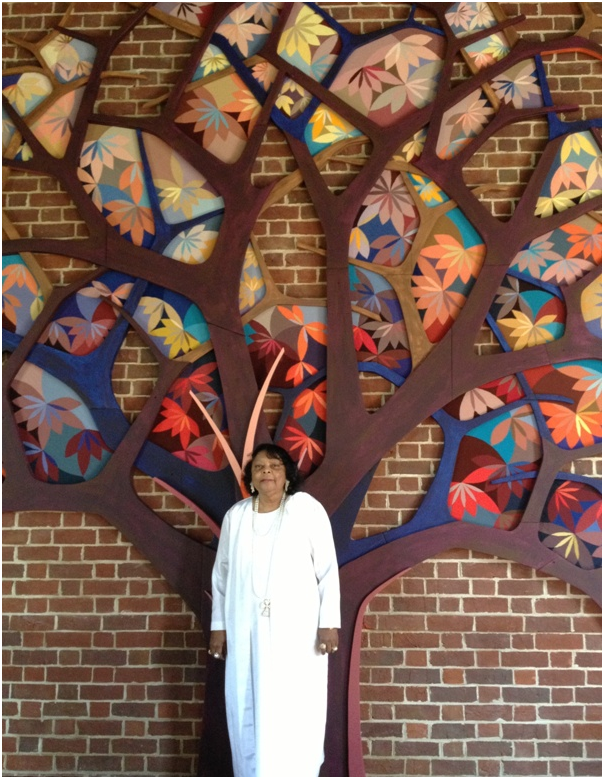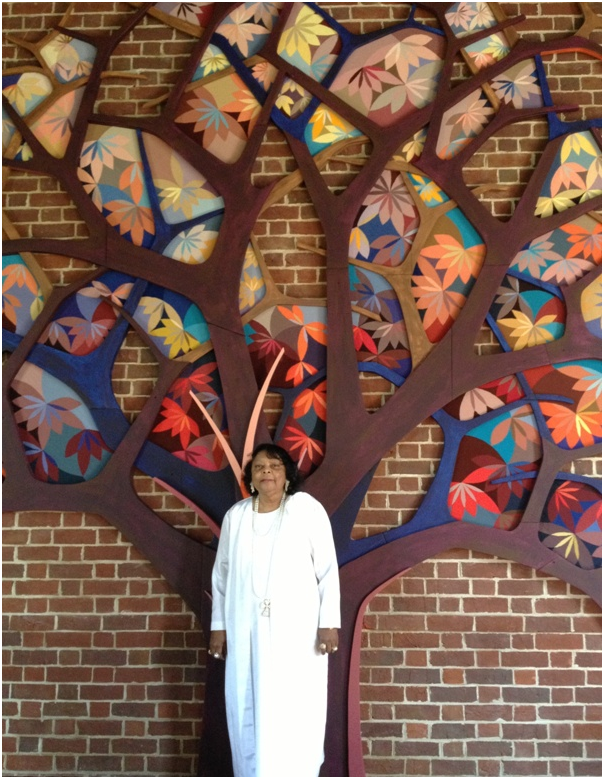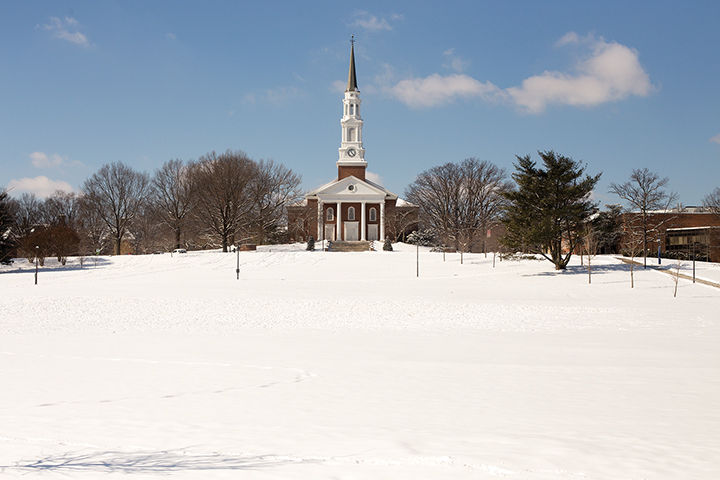Behind the Rev. Ruby Reese Moone’s desk in her Memorial Chapel office sits a golden statue of Martin Luther King Jr., gazing with a powerful but calm look on his face.
“We knew he was right, and we knew we wanted to correct a wrong situation. That’s why we marched,” Moone said, recalling marching with King during the civil rights movement. “You marched because it just felt like you were doing the right thing, and it meant so much.”
Moone, the 20-year chaplain of the Black Ministries in the Memorial Chapel, was a strong advocate in the civil rights movement and worked closely with King in the 1950s before coming to this university. Now, in light of Black History Month and next month’s 50th anniversary of the civil rights march in Selma, Alabama, Moone is looking back at her past.
Born in a small town in Sparta, Georgia, to sharecropper parents, Moone was one of 10 children — all of whom faced poverty and education challenges while growing up. Her time at school often was cut short so she could help tend to her family’s cotton farm to make money, she said.
“You’d pick cotton the latter part of August, so in the latter part of November we’d go back to school,” Moone said. “It was very difficult because the education was needed, but I would study hard during those times that I was working.”
Despite her family’s financial difficulty and discrimination in the South, Moone, who wanted to be a missionary worker, had her heart set on college. She graduated from high school at age 15 and eventually became the first member of her family to attend college while battling discrimination getting there.
“They would ask you to send a picture when you sent the application in, so I would get replies that they didn’t have a program for me,” she said, citing the discrimination she faced when universities saw she was black. “I told myself and my family, if it takes me 20 years, I’m going to get a college degree.”
Moone enrolled in what is now Fort Valley State University in Fort Valley, Georgia, to pursue a degree in sociology and preprofessional social work. In October 1955, Martin Luther King Jr. — then the young pastor of the Dexter Avenue Baptist Church in Montgomery, Alabama — spoke at Fort Valley State’s Religious Emphasis Week.
Later that December, King led the bus boycotts and Moone’s activism began. She worked closely with King’s administration, talking to people about voting and supporting his marches, including the march from Selma to Montgomery in 1965, a demonstration aiming to achieve equality and voting rights for black Americans.
The scene from that march turned chaotic, she recalled, citing the infamous day deemed “Bloody Sunday.”
“They had dogs. They had water. They beat people,” said Moone, who bared witness to the scene with her late husband, James C. Moone, while marching behind hundreds of people. “Blood was dripping from their bodies as they went across that bridge.”
Rumors started circulating that Moone was planning sit-ins in her Georgia community, and threats from the Ku Klux Klan made her fear for her safety as well as her job.
“It was so dangerous where we were working. We were teachers, and they certainly weren’t going to want a teacher working in the civil rights,” she said.
Moone then heard about the plans for King’s March on Washington, and she persuaded her husband to head north after they both got hired at high schools in this state, she said. They got to Montgomery County two weeks before the march to take part in it, she said. The couple later joined the NAACP and founded the first Southern Christian Leadership chapter in the county.
Anne Carswell, Moone’s sister and the associate director of the Nyumburu Cultural Center, left Georgia years later to join her sister and the civil rights movement.
“She was very passionate about it. Every time there was a march or something, she would go. We called her ‘Roadrunner,’” Carswell said.
Though Moone said working under King was challenging, she also remembers his warmth and dedication.
“My husband and I would eat breakfast at a restaurant across from the Southern Christian Leadership Conference’s building in Atlanta, and Dr. King would come there every Saturday morning and eat breakfast, too,” she said. “If we were there first, he would come to the table and sit down with us. … That was something really grand.”
Moone works to continue King’s legacy through her activism and praise for Christianity. She owns a ministry called Sweet Hour of Prayer Ministry, which gives scholarship money in the name of Moone and her late husband, and she continues to offer Christian guidance at the Memorial Chapel.
Alexandra Maye said Moone inspires her own on-campus involvement through being a Black Ministry Worship Board chairwoman, and she considers Moone to be a mentor and motherly figure.
“I remember one day she left church service early to attend the Black Lives Matter March in Montgomery County,” the senior criminology and criminal justice major said. “She’s been a person who’s vocal about what’s going on, and having her to facilitate conversation and what’s going on here right now is so wonderful. She’s still being a trailblazer in the movement.”
In 2011, Moone was in the front row for the ribbon-cutting ceremony for the Martin Luther King Jr. Memorial in Washington and still has a golden shovel from the event.
Moone also said she plans to return to Selma for the anniversary of the Selma to Montgomery march next month.
Echoing Moone’s involvement at the Memorial Chapel, Denise McHugh, the chapel’s coordinator, described Moone as a steady and valuable force to have on staff.
“She’s just a treasure trove of experience and stories about that really important time of our nation’s history,” McHugh said. “She’s not someone who just shares her life experience. But when you do ask her, she has a lot of knowledge and experience to draw upon.”





